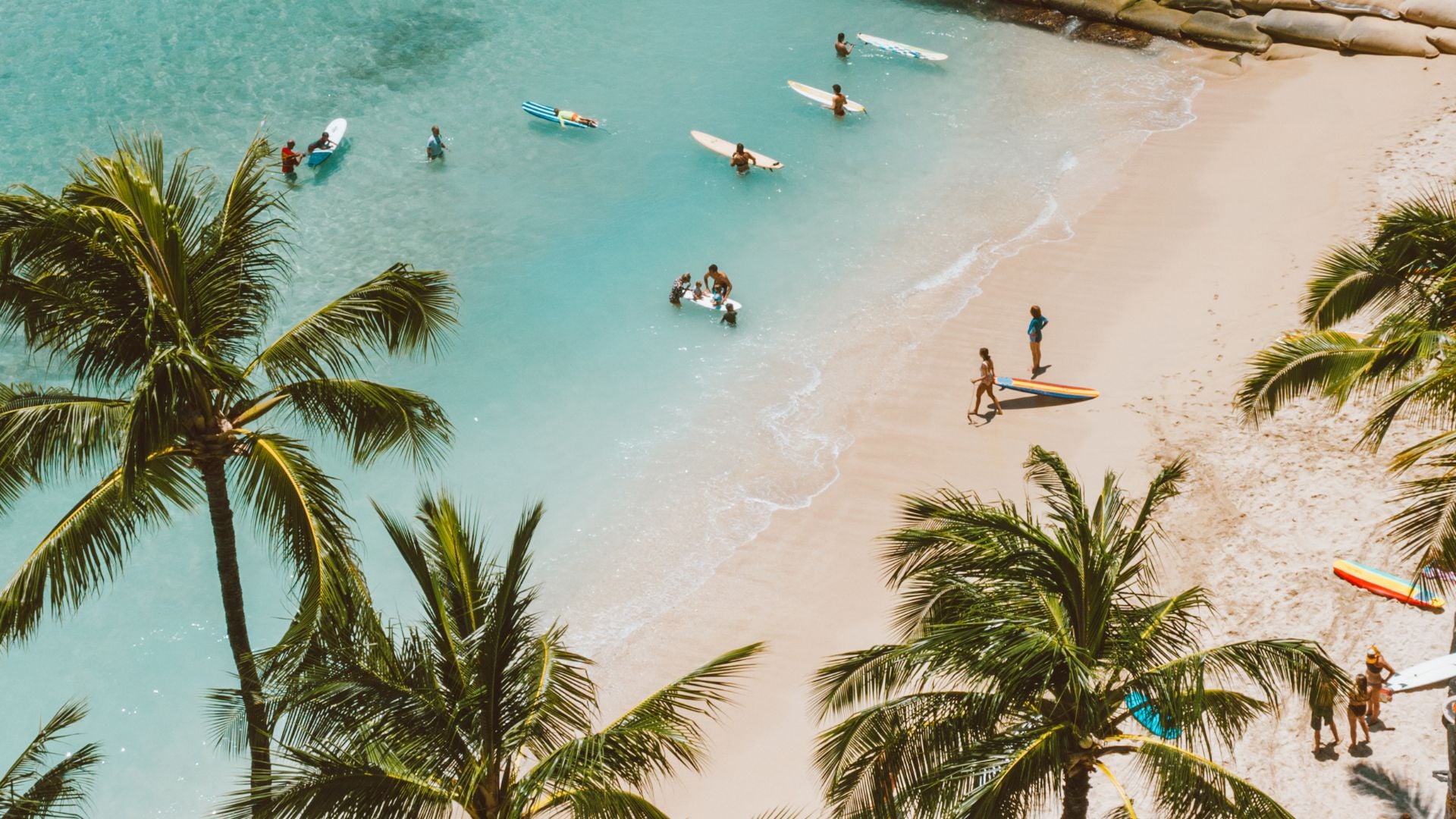
Sunscreen is a necessary part of any holiday away – especially in summer – but did you know that some sunscreens are now banned in certain parts of the world?
Chemical sunscreens have been shown to be harmful to coral reefs, and some holiday destinations have banned them.
This blog post will look at which chemicals in sunscreens are safe for the environment and which you should avoid. We'll also cover which holiday destinations have already taken action and banned the use of harmful suncreams at their stores, beaches and parks.
Read on to learn more about the dangerous sunscreens that are causing these bans and how to choose safe sunscreens to pack for your trip.
What Types of Chemical Sunscreens Have Been Banned
Chemical sunscreens with toxic ingredients including oxybenzone and octinoxate are now banned from some holiday destinations. These ingredients can pollute and bleach coral reefs and harm marine life, and aren't ideal for people's skin either.
The Hawaii Act 104 Reef Compliant Sunscreen Act 2018 was the first legislated US state ban on dangerous sunscreens. This Act bans oxybenzone or octinoxate based sunscreen used for swimming or sunbathing.
In recent years, well-known brands such as Banana Boat and Hawaiian Tropic have taken some steps to comply with the ban, however still use ingredients susceptible to be marine pollutants such as Octocrylene and Homosalate (see infographic below).
Why The Bans
These bans have come into effect to safeguard ocean marine life and the environment. Hazardous sunscreens harm coral reefs and marine life by causing bleaching and killing coral larvae. The ban on these sunscreens aims to preserve the local biodiversity and ecosystems, allowing them to flourish and stay healthy.

Which Holiday Destinations Have Banned Chemical Sunscreens
Hawaii, Key West in Florida, Palau, The U.S. Virgin Islands, Aruba, Bonaire, and Mexico have banned chemical sunscreens. The ban came into effect in different ways and at different times in each location.
More countries and cities are likely to follow suit with their own bans soon. It is therefore important for travellers to check the rules for their destination before packing sunscreen...
Hawaii
To preserve its coral reefs, the state of Hawaii banned sunscreens with oxybenzone and octinoxate on January 1, 2021. This law applies to all commercial stores that sell sunscreen in Hawaii.
Tourists travelling to Hawaii should buy mineral sunscreens to comply with the ban. Hawaii is the first US state to have an official ban on specific types of sunscreens.
Key West, Florida
The city of Key West, Florida, voted to ban the sale of harmful sunscreens in 2019 to safeguard its reefs. In a controversial move, the Governor of Florida took down the ban in 2020 making it unofficial.
Despite this, Key West still maintains its stance against dangerous sunscreens in principle. It asks the public to be mindful of the ingredients in sunscreen and how they can impact the environment.
Palau
Palau, located in the Pacific Ocean, is well known for its clear blue waters and diverse marine life. To shield its natural resources, Palau banned the sale and use of 12 chemicals in sunscreens proven harmful to reefs.
The ban came into effect in January 2020. It is a step in the right direction to preserve its natural resources and reefs for future generations.
The U.S Virgin Islands
In March 2020, the U.S. Virgin Islands banned sunscreens with oxybenzone, octinoxate, and octocrylene. It based the decision on years of research into the impact of these chemicals on coral reefs. It is expected the ban will help preserve the island's precious coral reef resources.
Aruba
Aruba is well known for its white sandy beaches and clear turquoise waters. Aruba's coral reefs are important in supporting the local economy of its island. In July 2020, Aruba banned harmful sunscreens in an effort to conserve its coral reefs.
Bonnaire
Bonnaire, a small island in the Caribbean, is unique in that it charges divers fees in an attempt to protect its reefs. Since January 2021 in a step further to safeguard its marine life it only allows reef-safe sunscreen to be sold anywhere on the island.
Mexico
Some areas of Mexico ban visitors from using certain sunscreens. Tourists should check before visiting parks and tourist areas in Mexico.
Xcaret and Xel-Ha, two popular natural water parks near Cancun, prohibit dangerous sunscreens used for swimming. Chankanaab Beach Adventure Park, on the island of Cozumel, requires visitors to use reef-safe sunscreens in line with its policy to safeguard the ecological area.
How Do I Know if My Holiday Destination Has Banned My Sunscreen
Before your next trip, check your destination's rules and regulations on sunscreen. You should be able to find this information on their website or from your booking agent. You can also contact the tourist board or local authorities if you're not sure about a brand.
As a general rule, prefer mineral sunscreen which are considered the reef-safe choice worldwide. Of course, you can always not buy sunscreen before your trip and buy it at your holiday destination. It might cost a bit more but at least you'll have peace of mind knowing you bought the right sunscreen.
How to Choose a Sunscreen for Your Next Trip
When choosing sunscreen for your next trip, make sure to check the ingredients list. Look for mineral-based sunscreens that contain non-nano zinc oxide or titanium dioxide as these offer more protection and are generally safer for the environment. Additionally, check for products labelled reef-safe or non-nano, as these ingredients are not harmful to aquatic life.
So, seeking a sunscreen brand that aligns with these requirements? People4Ocean is all natural, non-toxic, and free of harmful chemicals that damage the environment. The only active ingredient is non-nano zinc oxide.
Travellers will be both protected and allowed into all holiday areas wearing People4Ocean sunscreen. Explore the full reef-safe range today!



Comments (0)
Back to Blog